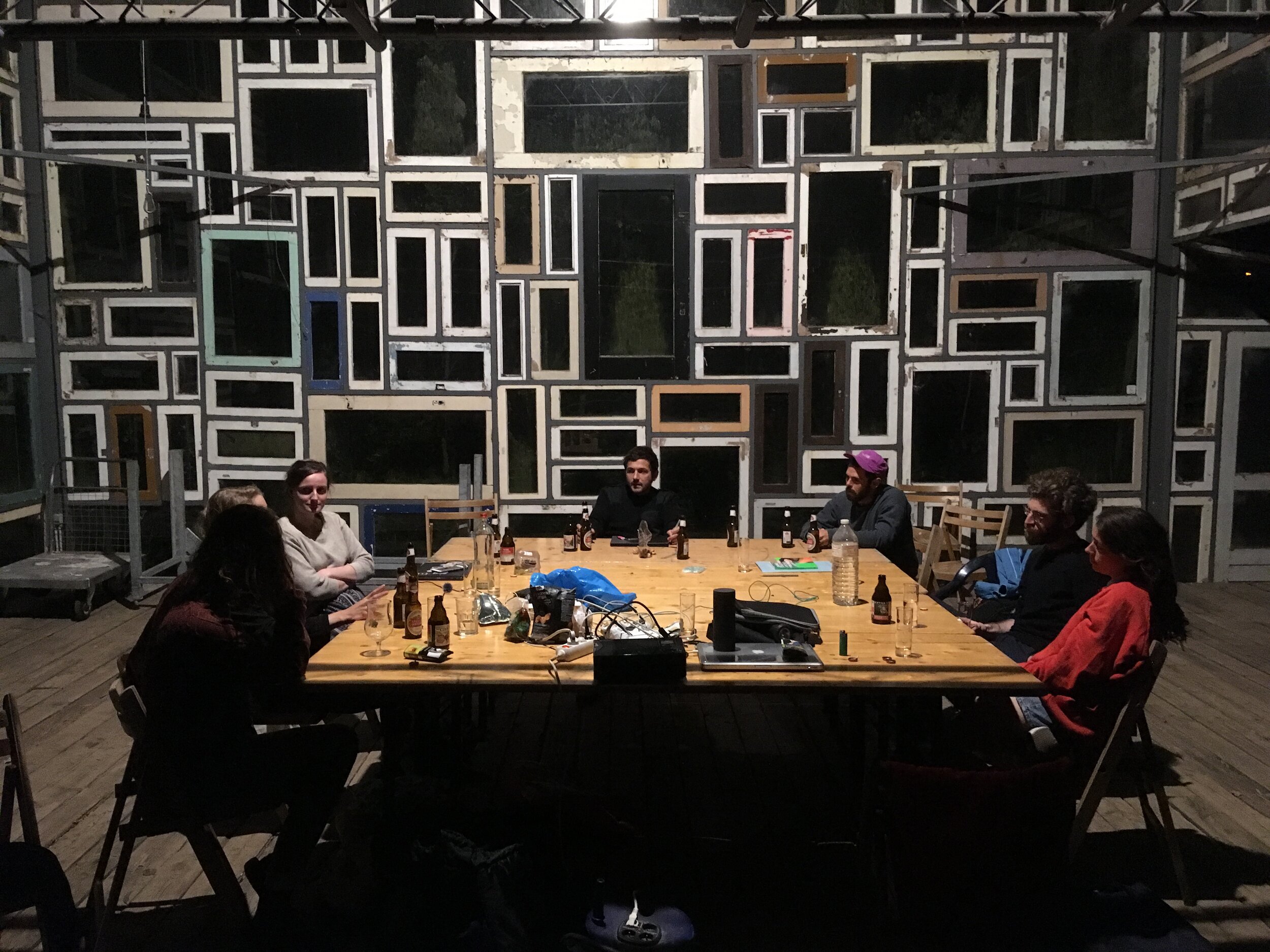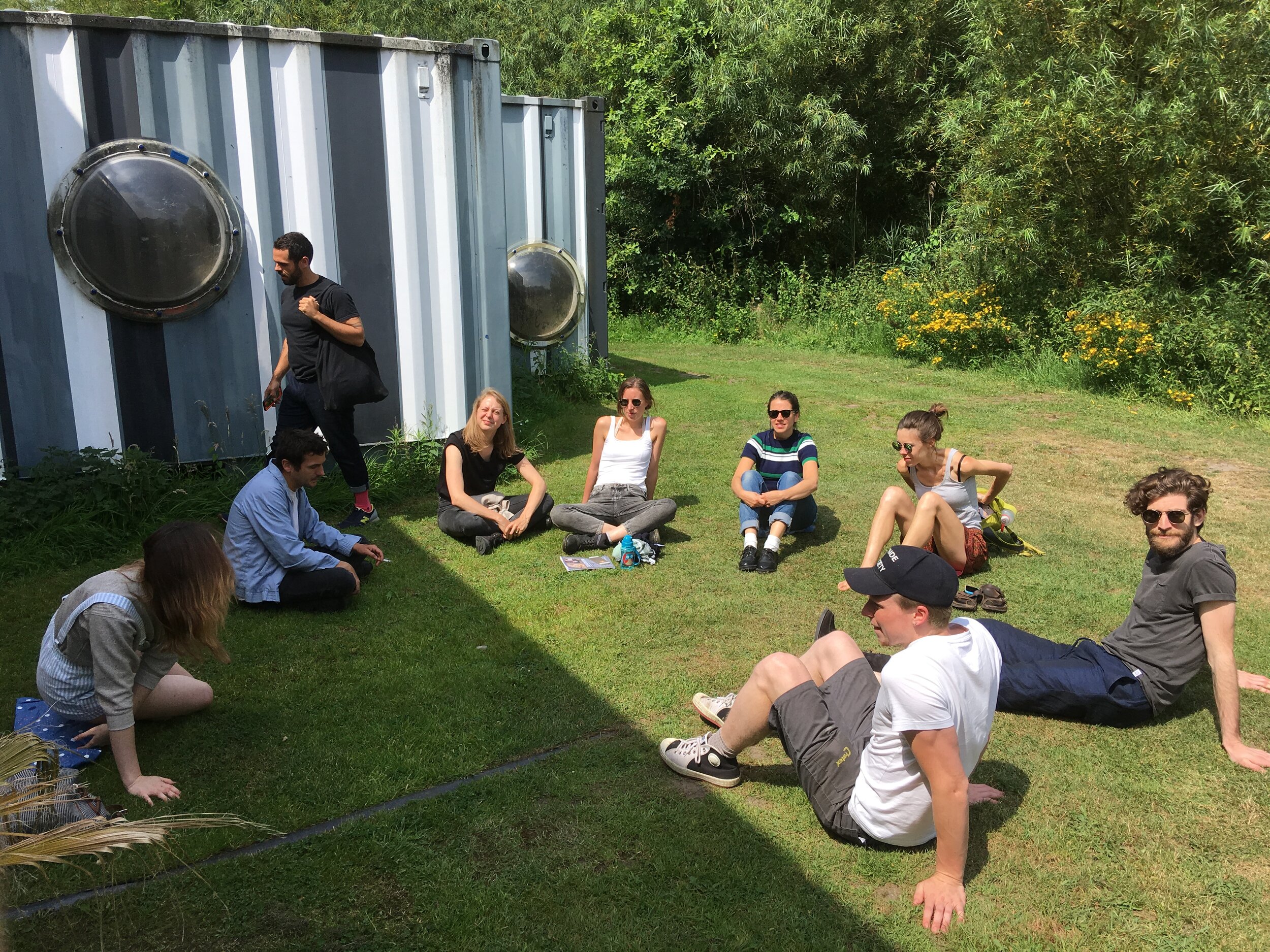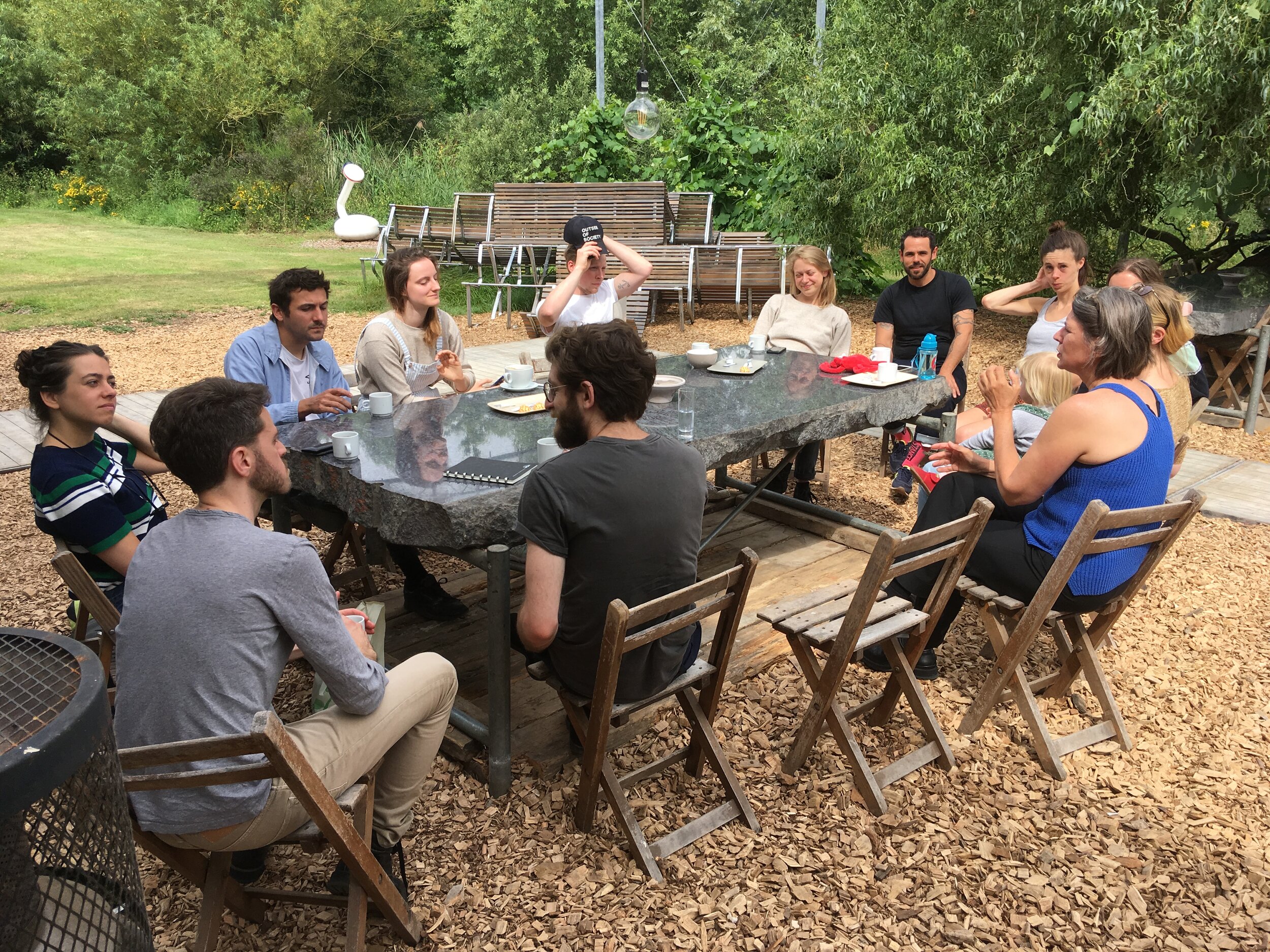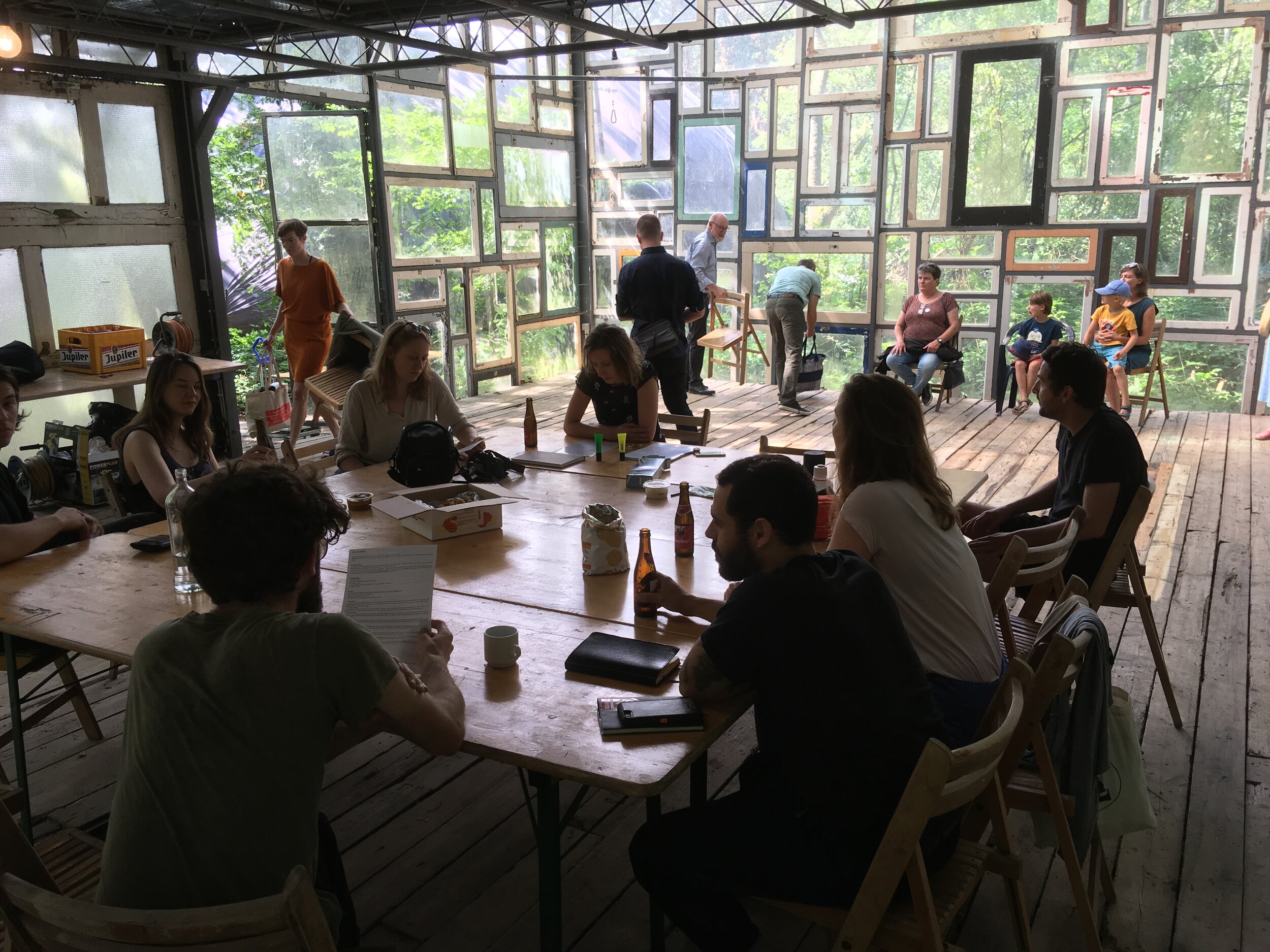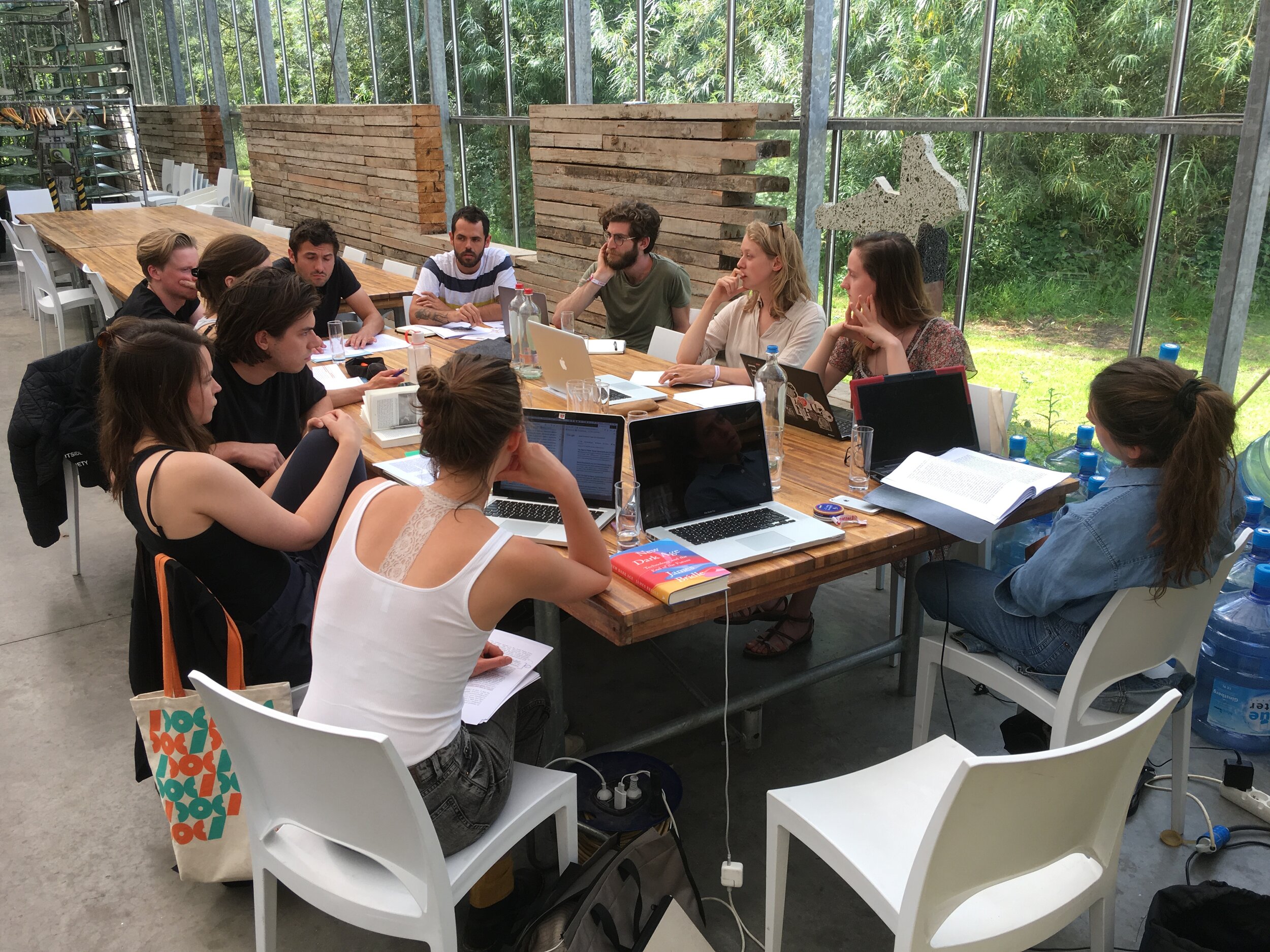The Last Meeting, a Gathering on Computational Governance
10 day work session (11/7 - 21/7 2019)
'Just as global telecommunications have collapsed time and space, computation conflates past and future. That which is gathered as data is modelled as the way things are, and then projected forward – with the implicit assumption that things will not radically change or diverge from previous experiences. In this way, computation does not merely govern our actions in the present, but constructs a future that best fits its parameters. That which is possible becomes that which is computable. That which is hard to quantify and difficult to model, that which has not been seen before or which does not map onto established patterns, that which is uncertain or ambiguous, is excluded from the field of possible futures. Computation projects a future that is like the past – which makes it, in turn, incapable of dealing with the reality of the present, which is never stable.'
- New Dark Age: Technology and the End of the Future, James Bridle
Information technology has long surpassed its purpose as a lifeless, functional tool—it now has an agency of its own. It has extended our bodies into devices, expanded our brains into networks, and moved us beyond our human capacities through the machine-automated elimination of inefficiency. Social media and telecommunications, service networks and interactive appliances, navigational positioning and tracking systems, personalised search engines and instant, ubiquitous access to the largest collection of data in the world—all of these are active agents in processing and steering our social and political lives.
When humanity—with all its flaws, irregularities and oddities—is transformed into data, a new modus operandi of automation arises: customs and cultural habits become calculable standards; the desires and fetishes of the individual shift into building blocks for citizens of the future; the randomness of human interaction and societal dynamics converts into a prewritten script. When the input we give the network turns into a compulsory feedback loop, the world becomes a digital commonwealth run by data-driven balancing protocols.
Through the gathering, we seek to investigate the possibilities and dangers of incorporating contemporary technology into policy- and decision-making, synthesising the phenomenal and the computational. The Last Meeting is a meta-meeting—a meeting in which to consider the possibility of never again holding another meeting. It is, we propose, the last, final meeting.
More info on www.thelastmeeting.net
In collaboration with Liesje De Laet & Ans Mertens

